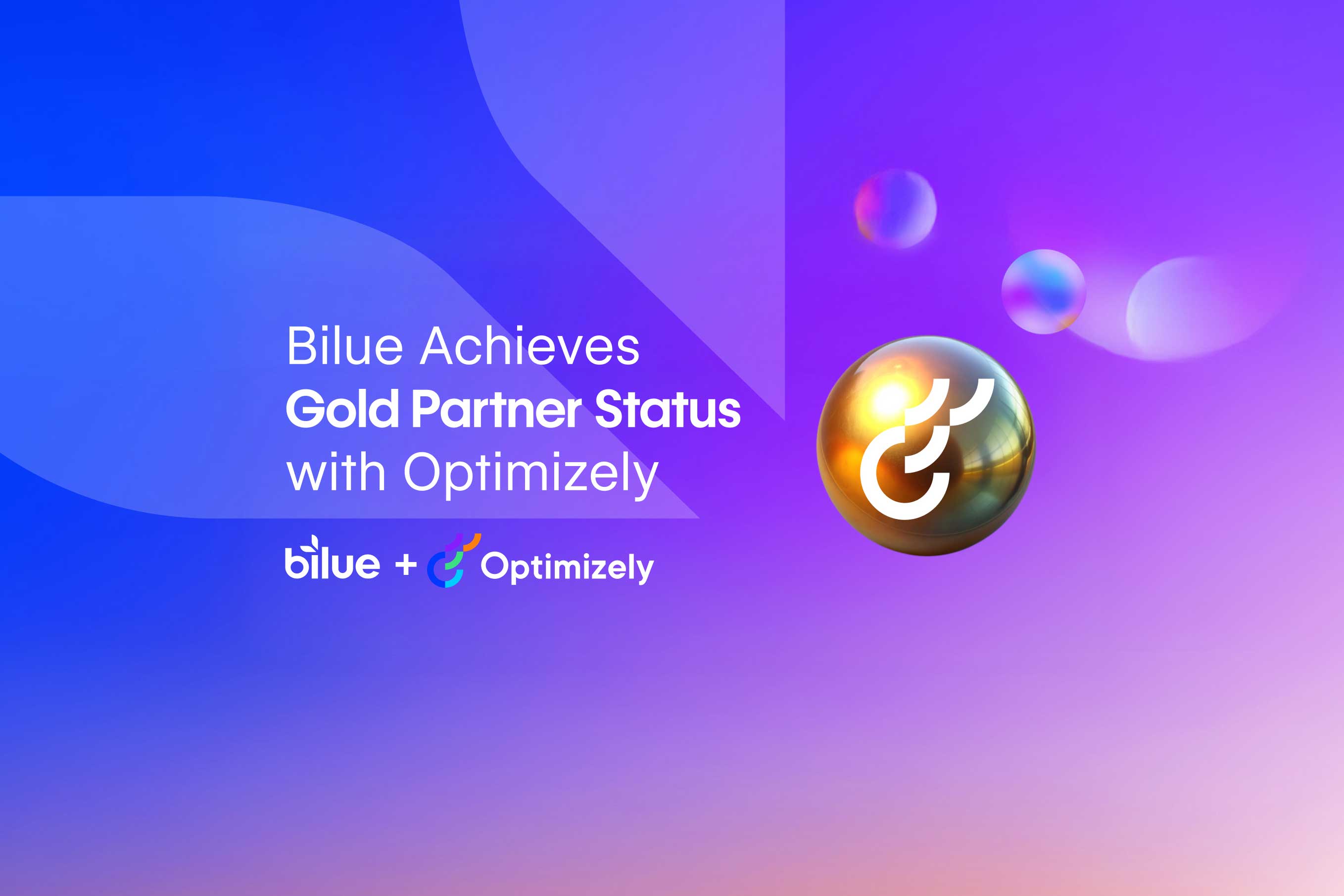Amazon Web Services (AWS) is a matchless medium for start-ups and enterprises alike. Dive into the depths of cloud computing and learn how to harness the power of AWS to your advantage. Our guide will take you through everything you need to know to get your feet wet with the cloud.
If you’ve never heard of Amazon Web Services or its abbreviation, AWS, it’s time to get acquainted.
Chances are you bought your new best gadget from Amazon – yes, that Amazon, the one that has everything. What you might not know is that Amazon’s digital shelves include a selection of cloud services: web hosting, storage, computing power, and a whole lot more. These services are called Amazon Web Services (AWS).
The cloud computing arm of Amazon has made a lot of advancements in recent years and is now one of the leading technology platforms to build and host your apps and websites. As a matter of fact: as of the 2nd quarter of 2021, AWS controls 31% of the cloud market making it the most popular cloud infrastructure services platform according to Statista, the data-gathering site.
It’s also making investors a lot of money –
In the third quarter of 2021, AWS generated cloud computing and hosting revenues of approximately 16.1 billion U.S. dollars.
Amazon Web Services has come a long way since its launch in 2006, but what exactly is it? And how can you make use of this massive technology platform to power your next web project or business?
Let’s take a look.
What is AWS?
Amazon Web Services (AWS) is a collection of cloud computing services that make up the on-demand computing platform offered by Amazon and it provides access to technology infrastructures such as compute power, storage, and content delivery on the Internet.
They are a set of remote computing services that help you build more scalable and reliable applications. In other words, it’s an alternative to buying your hardware, running your servers, and storing data on physical drives.
Some historical perspectives:
In the past when a business or developer wanted to build an app or website, they would have to buy their servers and store all the data on physical drives. Even if you didn’t want to build your servers, you would have had to lease or buy space from a hosting company.
As you can guess the hassle of all this was pretty high. From power consumption to cooling, servers are expensive.
As the demand for services increased – It could be any time of day or night – scaling was also a problem.
Amazon Web Services changed the game by introducing a pay-as-you-go model – you only have to pay for the services you use.
Its main product, the Amazon Elastic Compute Cloud (ECS), also known as EC-two or just EC, is a virtual server where you can run all kinds of software without having to buy or manage any hardware/infrastructure.
This cuts costs for everyone and makes the entire system more efficient.
What can you use AWS for?
You can use AWS for all kinds of things, but most importantly it makes web hosting, apps, and storing data so much easier.
You can use AWS to build web apps, for example:
- To streamline your business processes using AWS Lambda, which lets you run code without provisioning or managing servers
- To build an app for your business using Amazon Elastic Beanstalk, which is a PaaS (Platform as a Service) for hosting your apps
- To store your data on Amazon SNS, the simple fully managed push notification service
- To boost your website traffic by hosting it on Amazon CloudFront, and easy to use Content Delivery Network (CDN)
- To host your blog on Amazon SES, the scalable email sending service.
The list goes on…
AWS is also great for testing and debugging. Once you deploy your app to AWS, it’s easy to test different versions of the same code with Amazon EC. This is called A/B testing, and it lets you measure which code performs better.
AWS also makes your data safer by giving you options for low cost and high durability storage.
And as if that isn’t enough, it also gives you the option to build your virtual servers on Amazon EC.
Okay, you know you can use AWS for all sorts of things. The next question is how do you use it?
Some Real-Life Use Cases:
Some common use cases include:
- Media Streaming (Netflix, Stan)
- Ecommerce Stores (Reverb, Amazon)
- Social Platforms (Twitter, Snapchat, TikTok)
- Data Analytics and Storage (Netflix, Spotify).
Other notable companies and institutions using AWS are:
- The government of the US
- CIA
- LG
- Dow Jones
- Moderna
- NASA
- Atlassian
- Slack
- F1
- Adobe and many more!
Most of the web traffic and data are processed through AWS.
How do you use AWS?
The first thing to do is sign up for Amazon Web Services.
After you sign up, you can choose from a long list of services including EC, SNS, Analytics, and CDN.
Then you go through the AWS console to create a new service or connect existing services using APIs (Application Programming Interfaces).
You can also use the AWS SDK, which is a collection of libraries for building apps in your programming language. And if you need help, you can go to the AWS documentation, which has everything from tutorials and sample code to full reference manuals.
AWS has dozens of features. In this guide, we would look at some services that are useful for building web apps.
But since the list is so massive, let’s just focus on the most popular AWS services.
Some of the main services included in AWS are:
Amazon Elastic Compute Cloud (EC2)
The Amazon Elastic Compute Cloud, also known as EC-two or just EC, is a virtual server where you can run all kinds of software. The actual servers are called EC-two instances.
Each EC-two instance has an IP address and a set of drives where the operating system is installed.
Compute power is also scalable – you can add more servers whenever your website goes viral. This makes AWS perfect for hosting apps and websites, but also for processing big data.
Amazon Simple Storage Service (S3)
Data is the lifeblood of any business and Amazon Simple Storage Service (S3) is a secure, durable, and highly scalable cloud storage service that allows users to upload, store, as well as retrieve data up to 50 TB on a single object.
AWS Lambda
AWS Lambda is a service where you can upload code that responds to events. Developers can code these functions to run on AWS Lambda and the cloud provider handles all of the infrastructures.
As a result, you can use this service to build an app that will only run when needed. This means it’s not necessary for the service to always be running, so you can save money.
AWS Lambda automatically scales to the traffic your app receives, so you can focus on coding and not worry about infrastructure management.
Amazon SNS
The Amazon Simple Notification Service (SNS) is a fast and flexible push messaging service. It allows users to send messages from one or more of the supported communication channels.
These include email, mobile push notifications, and SMS text messages.
SNS is also perfect for building real-time apps because the messages are delivered immediately.
SNS is also scalable, which means you can send a lot of messages simultaneously without worrying about paying for high traffic.
Amazon CloudFront
This service, also known as CDN (Content Delivery Network), gives users an easy way to distribute static web content. Content such as videos, images, and text files can be served from a global network of edge locations.
CDN is great if you have a website that gets a lot of traffic.
The service also provides lower network latency, which means the user experience will be improved because your site can load faster.
Other AWS services that can be used to build apps include Amazon DynamoDB, Amazon Elastic Transcoder, and AWS IoT.
Additional services include Amazon RDS, Amazon Kinesis, Amazon EBS (Elastic Block Store), Amazon Glacier, Amazon VPC, Amazon SQS, and more!
Learning to use AWS
You need to be skilled to maximize the benefits of the large range of services offered by AWS.
If you are not then there is nothing to worry about. You have the option of training on AWS services.
If you decide to do it on your own, there is a huge pool of resources to choose from.
From blogs, courses, YouTube videos, and more you can find anything you need on the web.
Amazon also provides resources and guides to help you get started.
AWS also provides a Certification program based on official AWS exams that will give you an edge in the job market.
Start small and experiment with the different services, tools, and features.
As you do this, the more confident and skilled you will become.
Once that happens AWS can help your business take off!
On the other hand, if you want to outsource your app or any kind of software application, an AWS Development Partner like Bilue has the certifications and expert knowledge to ensure you leverage the power of AWS. Not only that, our app developers would be happy to answer all your questions.
Benefits of using AWS
Amazon Web Services offers many benefits to individuals and companies.
Some of the major ones include:
Scalability:
Consider a nightmarish scenario where your website suddenly becomes massively popular and your server crashes.
With AWS, this isn’t a problem because you can just scale your service when needed! Scaling up, scaling down your CPU needs, or increasing and decreasing storage space whenever you need it can be done in minutes, not hours, and in some cases can even be completely automated.
Whatever you’re using AWS for, whether it is storage, computations, push messaging or anything else, it will scale up and down to match demand.
This is something that a premises system simply can’t do, you have to provision for a minimum load, and you can’t scale your capacity up in real-time.
With AWS, you can scale up or down whenever needed!
You won’t have to worry about expensive servers, either.
Reliability:
Do you remember the days when your servers would crash and you’d spend all day trying to get them back online while the CEO yelled at you!
Well, with AWS you won’t have to worry about that.
Since it’s a large, reliable network of servers you can expect your apps and websites to always be available.
The impact of this on your business (website or apps) could be huge.
You won’t have to worry about losing money because your website went down, which is something that used to happen all too often.
You’ll also have peace of mind knowing that your site is always up and running!
This will allow you to focus on other important things.
Security:
If you are worried about security, you should know that AWS was built with it in mind.
We all know data breaches, malware, ransomware, and more are all things that companies worry about.
AWS has many features that make it secure from the ground up.
Running a Well-Architected Review is the first step to ensuring your AWS implementation has correctly deployed these security policies and features.
Cost Savings:
AWS is perfect for start-ups and small businesses because it’s very affordable.
For example, let’s say you want to develop a mobile app or website for your business.
Most likely you would need an on-premises server to store the website files, databases, and more.
This can get very expensive very quickly.
AWS, however, is different because you can pay as you go! You only have to buy what you need when it’s needed.
This is perfect for start-ups because you will not have to invest thousands of dollars upfront just to see if your product or service takes off.
If it doesn’t, you won’t have to worry about paying for services that are not being used.
However, if you do experience a massive surge in traffic you will be ready thanks to AWS.
Through its scalable nature, your service can grow with demand!
Ease of use and Flexibility:
The services are easy to use and can be accessed through a variety of methods, such as the AWS Console or API calls.
You can integrate your AWS account with your other services on the web, including Google Drive and DropBox.
It also provides a large range of APIs that can be used to integrate with your apps and services.
For example, you can use the Amazon SNS API for push messaging in real-time on your site.
You’ll never have to worry about being locked into one service with AWS thanks to its flexibility.
This is beneficial because you can use AWS with other popular services that your customers may already be using.
Transformative:
But don’t take our word for it. If you’re interested in hearing directly from one of Bilue’s customers about how transformative AWS can really be, here is Dan McLean, Head of Engineering at Guzman Y Gomez talking with AWS’s Aley Hammer about their AWS journey.
Conclusion:
With its many benefits and features, AWS is a great service for any company.
If you’re worried about reliability, security, or cost-saving, AWS is perfect for building your mobile apps or other IT assets.
If you want to learn more about how it works and what benefits it can provide, contact us today. We offer a free consultation and evaluation; get in touch with us to learn more!















